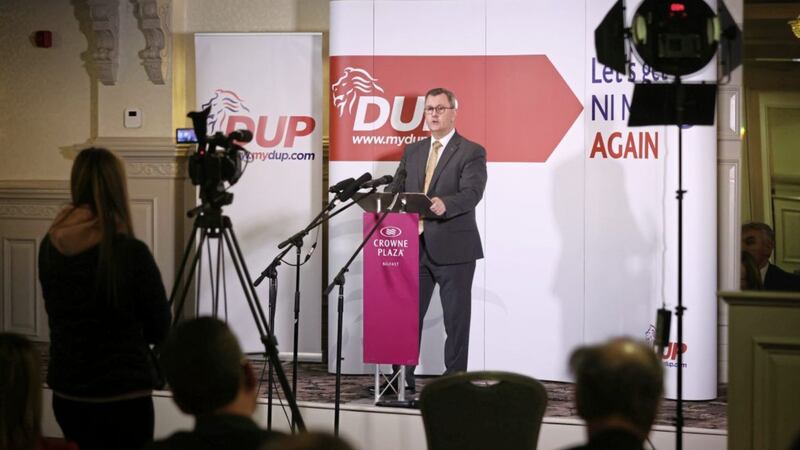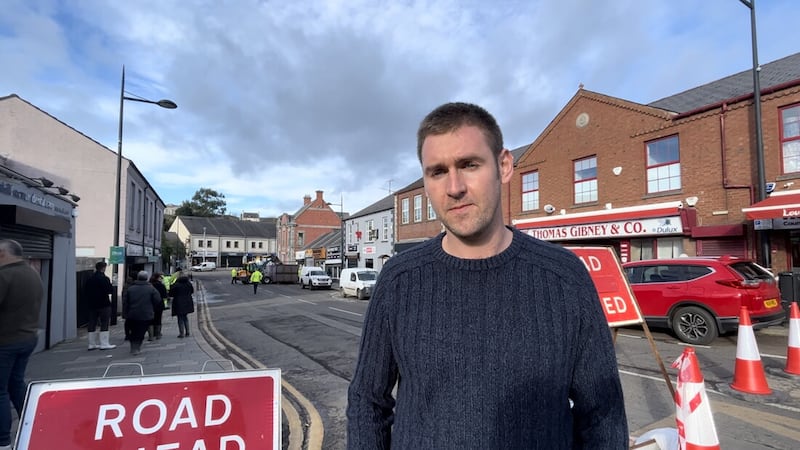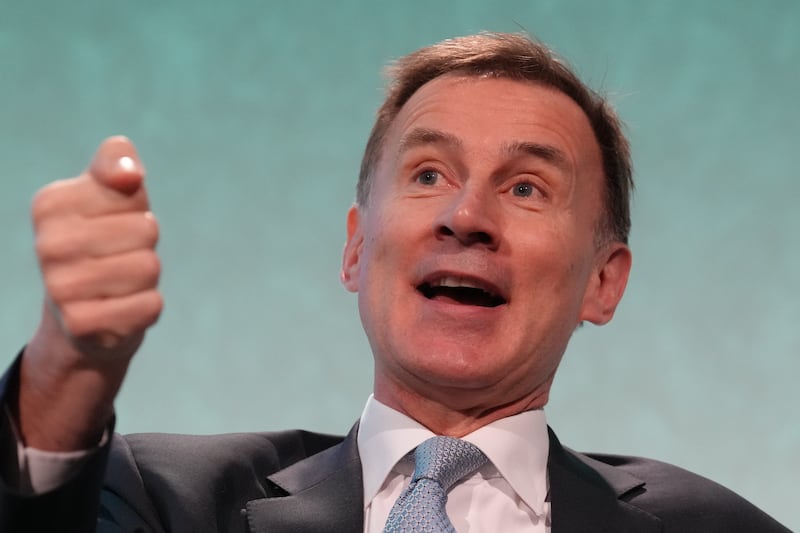THE DUP has been criticised for basing its economic case against the Northern Ireland Protocol on the evidence of just four businesses.
In a speech following the resignation of Paul Givan as first minister, Sir Jeffrey Donaldson said the protocol had cost the north’s economy £535 million in the 217 days since he became DUP leader.
“That’s £2.5m every day. That’s over £100,000 per hour,” he told the gathered media.
It’s understood the figures were based on the analysis of Ulster University economist Esmond Birnie, who wrote in August 2021 that the protocol was costing £850m per year, largely on the assumption that it was adding a six per cent cost burden on all businesses.
The figure is based on the experiences of four firms including Marks & Spencer, Moira transport firm Allen Logistics and two other unnamed businesses, raised at a House of Lords sub-committee.
Dr Birnie surmised that based on the value of goods coming into the north from Britain being worth around £10 billion each year, the overall cost would be £600m for the private sector.
He further estimated the cost of implementing the protocol would be £250m per year for the public sector. Dr Birnie has since doubled down on the analysis, suggesting it could be at least £900m per year.
In a BBC interview. economy minister Gordon Lyons defended the figure, claiming it was sourced from “part of the NI Fiscal Council”.
While Dr Birnie is a member of the council, the new fiscal watchdog confirmed in a letter to SDLP MLA Matthew O’Toole that the analysis was not part of its work and written in the economist’s personal capacity.
Dr Birnie’s analysis has been criticised by Mr O’Toole and Sinn Féin’s chair of the economy committee, Caoimhe Archibald, for omitting data on the increased movement of goods from Northern Ireland to the Republic under the protocol.
The MLAs also claimed it had not factored in the broader costs of Brexit to the UK economy.
In December, the first major study of the Northern Ireland Protocol, conducted by The Fraser of Allander Institute (FAI) at the University of Strathclyde, forecast that the north’s economy would be 2.6 per cent smaller under the protocol when compared with staying in the EU.
That’s a less severe impact than the Treasury funded Office for Budget Responsibility’s four per cent forecast for the impact of Brexit's on the wider UK economy.
The FAI report does not factor in the protocol’s impact on foreign direct investment (FDI). A number of major companies in the north including pharma giant Almac and the Henderson Group, have raised the potential advantage of dual market access under the protocol.
The chief executive of Manufacturing NI, Stephen Kelly, said the FAI's report shows that further adjustments to the protocol takes the economic impact down to 1.5 per cent for Northern Ireland.
“Evidence that we’re protected by rather than damaged by the protocol,” he said.
The industry chief cited the business group’s own surveying, which found fewer than one in four (23.9 per cent) manufacturers were still struggling with the new requirements, significantly down from 41.3 per cent when surveyed in July.
“The rest, more than two-thirds, experienced no impact, are on top of the issues or see them resolving soon,” said Mr Kelly.
“For some a few business examples is not enough to prove benefits, yet a few business examples is enough to prove disadvantage.
“For manufacturers it’s about fixing what’s fixable in the protocol and grasping the opportunity which we’ve been given.
“Some struggle, much more are winning. Do more of that and we’ve a chance to transform communities across the north.”








